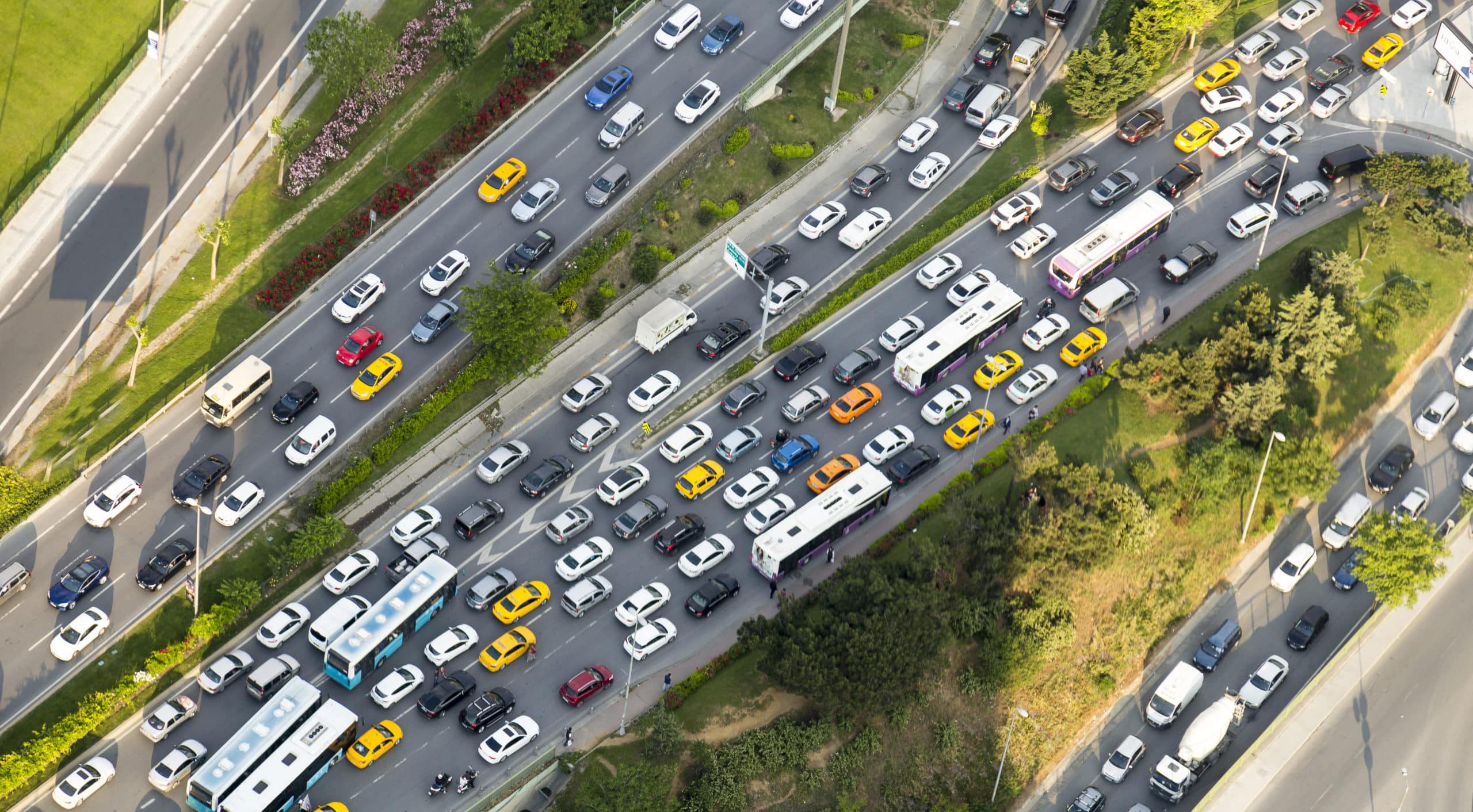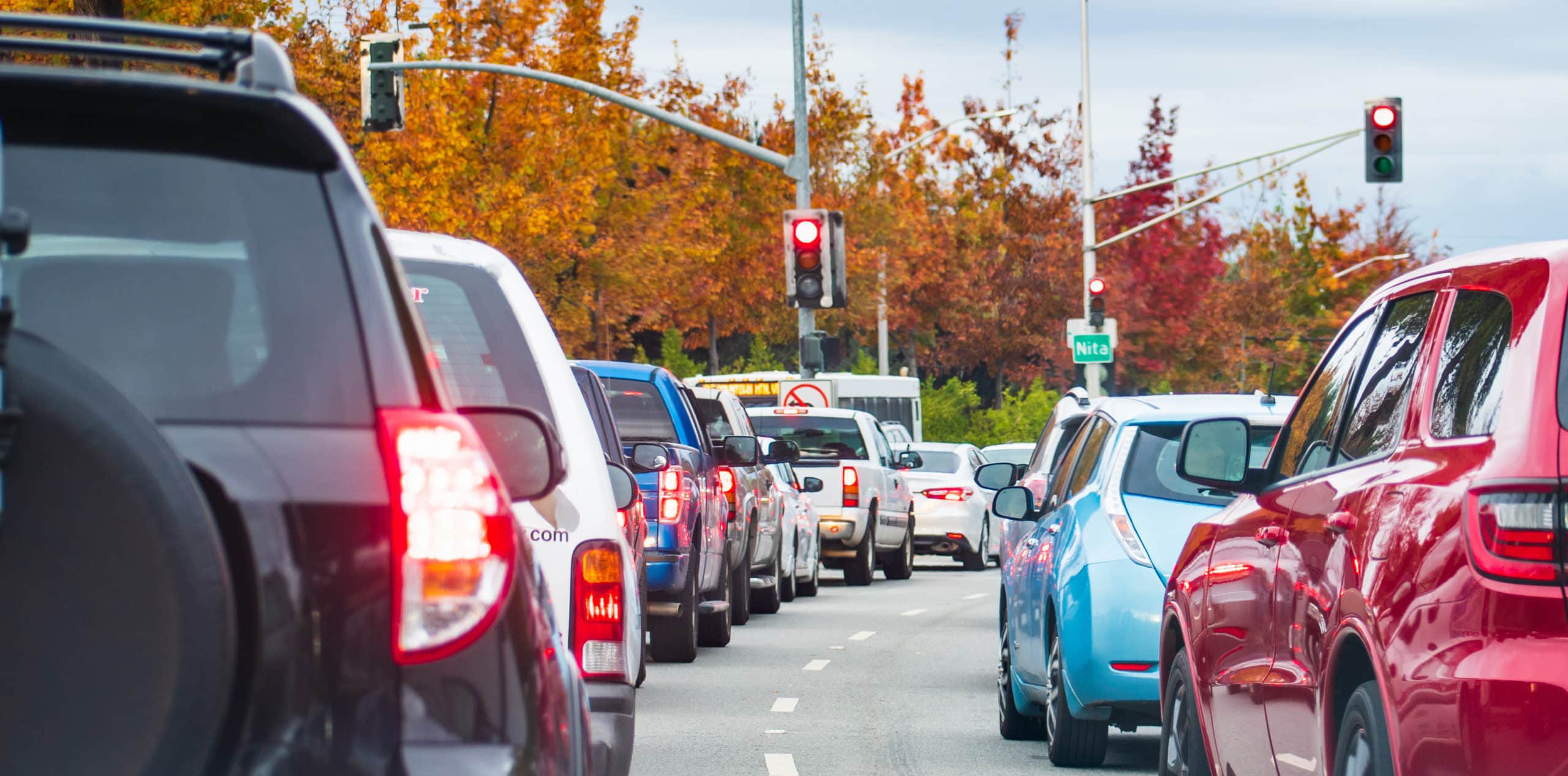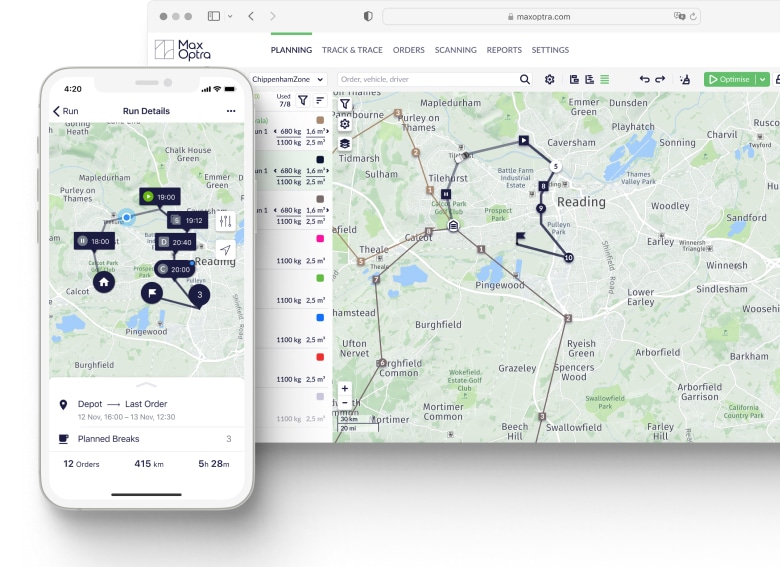The impact of traffic data on Route Optimisation

For any business that offers delivery, the more time spent on route planning and delivering goods, the more money is consumed.
With this in mind, route optimisation, the process of generating the most efficient delivery routes for vehicles, plays a crucial role in reducing fuel consumption. Improving delivery times, and reducing logistic operational costs.
One of the key elements to successful route optimisation lies in leveraging up-to-date traffic data. By integrating traffic information into routes, businesses and logistics operations can further fine-tune their optimised routes to achieve an increasingly streamlined and cost-effective approach to route management.
The role of traffic data in route optimisation
When it comes to route optimisation, traffic data is collected from a variety of sources, including GPS devices, traffic sensors, mobile data, and government traffic reports.
Traffic data provides estimations on likely road conditions, congestion levels, accidents, and road closures. This information is crucial for route planning, enabling businesses to adjust routes based on up-to-date historical data, avoiding congestion time, saving fuel, and reducing overall travel time.
The benefits of integrating traffic data into route planning are significant, offering improved efficiency and cost savings for logistics companies, delivery services, and any business relying on road transport.
Benefits of using a traffic route planner
A traffic route planner provides significant advantages over traditional static route planning.
By continuously monitoring and analysing traffic data, these solutions can recommend optimal routes that minimise a variety of delays. This approach improves travel time, reduces fuel consumption, and enhances overall fleet efficiency.
The ability to adapt routes based on historical data not only improves customer satisfaction but also reduces costs associated with fuel and vehicle maintenance. In essence, traffic route planners provide a dynamic solution for businesses looking to optimise their operations and remain competitive.
How is traffic data taken into account in route optimisation?
Traffic data is taken into account in route optimisation by using up-to-date historical information about road conditions, congestion, and likely delays to adjust routes during planning. This ensures that vehicles avoid traffic, reduce travel time, and optimise fuel usage.
Route optimisation tools leverage machine learning and predictive analytics to process vast amounts of traffic data. By understanding patterns such as peak hours, accident-prone zones, and road closures, these tools can forecast potential delays and route vehicles accordingly.
This level of sophistication not only saves time but also minimises the impact of unforeseen traffic events, leading to greater operational efficiency.
What problems can arise from taking traffic into account before route optimisation?
Whilst using traffic data is advantageous, some problems can arise, such as data inaccuracies, reliance on outdated information, or over-complication of routes due to excessive data points. These issues can lead to inefficient route planning and increased travel time.
One of the challenges is the quality and accuracy of traffic data. If the data is outdated or not refreshed frequently, it can lead to poor routing decisions.
Overreliance on automated systems without adequate human oversight can also result in routes that are overly complicated or unsuitable for certain types of vehicles.
Additionally, integrating multiple data sources can sometimes cause conflicting information, which can confuse route optimisation algorithms.
Therefore, it is vital to use high-quality, reliable traffic data and continually validate route optimisation models to avoid such pitfalls. And to choose a route optimisation supplier that offers a reliable solution that uses high-quality data, as well as provides a dedicated support team, resources, and training.
Can traffic data reduce travel time?
Yes, traffic data can reduce travel time by providing insights into historical road conditions, enabling route optimisation tools to avoid congested areas, accidents, and delays. This results in faster, more efficient routes that save time and fuel.
By generating routes based on traffic information, businesses can avoid common traffic bottlenecks and find the fastest path to their destination.
This flexibility is especially critical for industries with tight delivery windows, where even minor delays can lead to significant financial losses.
How does traffic factor into MaxOptra’s route optimisation?
MaxOptra integrates traffic data into its route optimisation algorithms to provide accurate, efficient routing solutions for businesses. By leveraging traffic information, MaxOptra’s solution adjusts routes dynamically, helping companies save time, reduce costs, and improve service quality.
This data is fed into its advanced route optimisation algorithms, which are designed to factor in traffic flow, road conditions, and potential delays.
As a result, MaxOptra can generate accurate and streamlined routes that help fleets avoid congestion and deliver goods faster. This intelligent use of traffic data ensures that businesses can maintain high levels of service while minimising operational costs and environmental impact.
In conclusion
Traffic data has revolutionised route optimisation, offering businesses a powerful tool to improve efficiency and reduce costs. By using traffic route planners and advanced traffic optimisation techniques, companies can ensure timely deliveries, enhance customer satisfaction, and gain a competitive edge.
For businesses looking to take advantage of traffic data in their route planning, solutions such as MaxOptra provide a comprehensive solution that integrates seamlessly with existing operations.
To learn more about how MaxOptra can help your business optimise its route, get in touch.
Maxoptra System
© MaxOptra, 2023. Privacy Policy and Cookies






